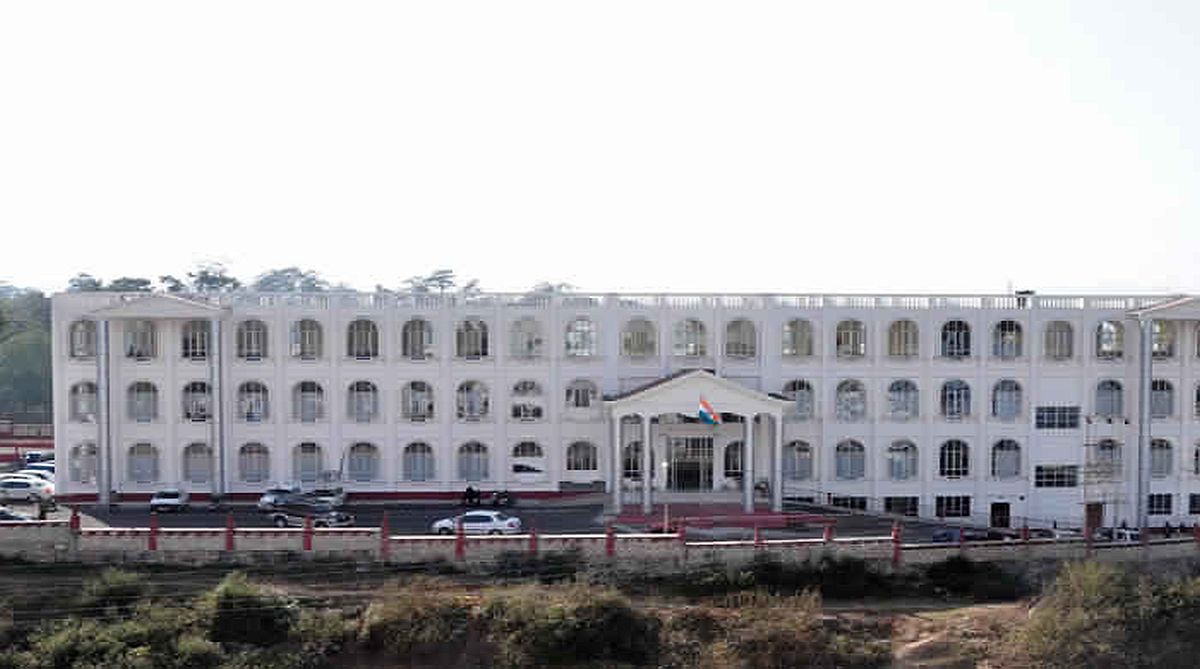Justice Tashi Rabstan named Chief Justice of Meghalaya High Court
Justice Rabstan, who is currently the senior-most judge of the High Court of Jammu and Kashmir and Ladakh, will be the first Chief Justice from the Ladakh region.
The Meghalaya High Court has severely criticised the Meghalaya government for the faulty rules on the illegal extraction of minor minerals, observing that the “abode of clouds (the meaning of Meghalaya) appears to be an abode of anarchy”.

(Photo: meghalayahighcourt.nic.in)
The Meghalaya High Court has severely criticised the Meghalaya government for the faulty rules on the illegal extraction of minor minerals, observing that the “abode of clouds (the meaning of Meghalaya) appears to be an abode of anarchy”.
The high court, in its order, pointed out that tens of crores of rupees in revenue, at least, have been lost to the state from 2018 to 2021 with the state “sponsoring” illegal extraction of minor minerals by tweaking the definitions and including “incidental” within its fold without any checks or balances.
Advertisement
Hearing a Public Interest Litigation, a division bench of Chief Justice Sanjib Banerjee and Justice W. Diengdoh on Tuesday asked Chief Secretary R.V. Suchiang to report on measures taken to check such “incidental loot of minor minerals”, which “alarmingly, may be state-sponsored”.
Advertisement
“What is evident from the documents relied upon by the petitioner in this PIL is that an amendment was brought about in the Meghalaya Minor Minerals Concession Rules, 2016, on January 29, 2018 with what appears to be a disingenuous design to facilitate illegal quarrying and mining.
“A new definition was added to the Rules by introducing, inter alia, clause (u) to define ‘incidental’: “(u) ‘incidental’ in the context of extraction of minor minerals means such an unintended extraction which arises out of non-mining activities such as construction of roads or other major infrastructural projects.”
The bench, in their order, said that what is more distressing is that even though such “incidental” extraction of minor minerals was officially recognised, the transportation of such “incidentally” extracted mineral was not also provided for since Rule 26 was confined to transportation by only lessees or permit-holders and persons who “incidentally” extracted minor minerals could not be said to be either lessees or permit-holders.
“It must be recorded at this stage that the Advocate General appearing for the state has no answer to any of the glaring anomalies that have been pointed out and admits to a sorry state of affairs,” it said.
The petition reveals that several persons “incidentally” extracted amounts as much as 99,061.2 MT, 42,907 MT, and 34,621 cubic metres of limestone in the course of construction of a farmhouse or a residential pathway or paving the way to a paddy field. There are several such instances of large scale “incidental” extraction of limestone without it being in the course of any road construction or infrastructural project, the court said, adding that there is no doubt that there is executive complicity in the matter.
“Indeed, this reflects an utterly inept bureaucracy and no check or balance or any accountability at any level.”
It is also apparent that there was state support for the continuing illegal mining despite orders having been passed several years back by the Supreme Court and the National Green Tribunal (NGT), the HC said adding that at best, the administration appears to be “rudderless” with the deficiencies admitted by the Advocate General but no remedial measures being taken.
“The guardians of the state assets let veritable poachers in for obvious extraneous considerations,” the court said, comparing the state’s action “to a house owner inviting thieves to loot all his properties and then seeking a commission on the sale thereof”.
The matter will be heard again on April 25.
Environmental activists in Meghalaya and Assam have said that despite the orders of the Supreme Court and the NGT banning indiscriminate and hazardous ‘rat-hole’ coal mining in Meghalaya, it continued unlawfully with the authorities turning a blind eye, despite the spate of accidents and deaths.
Advertisement